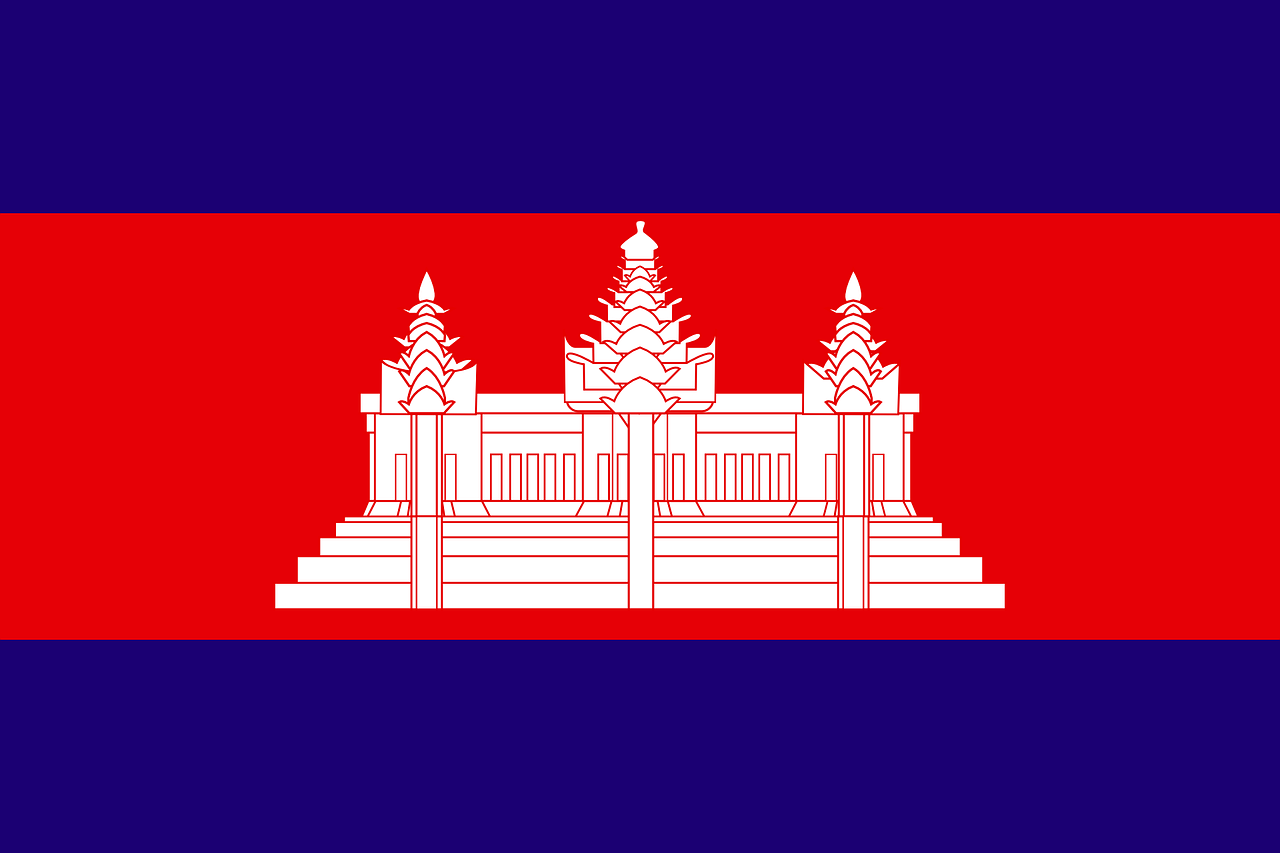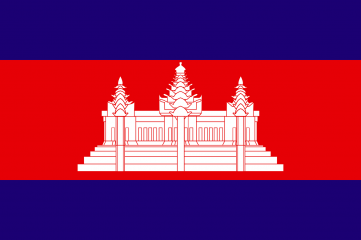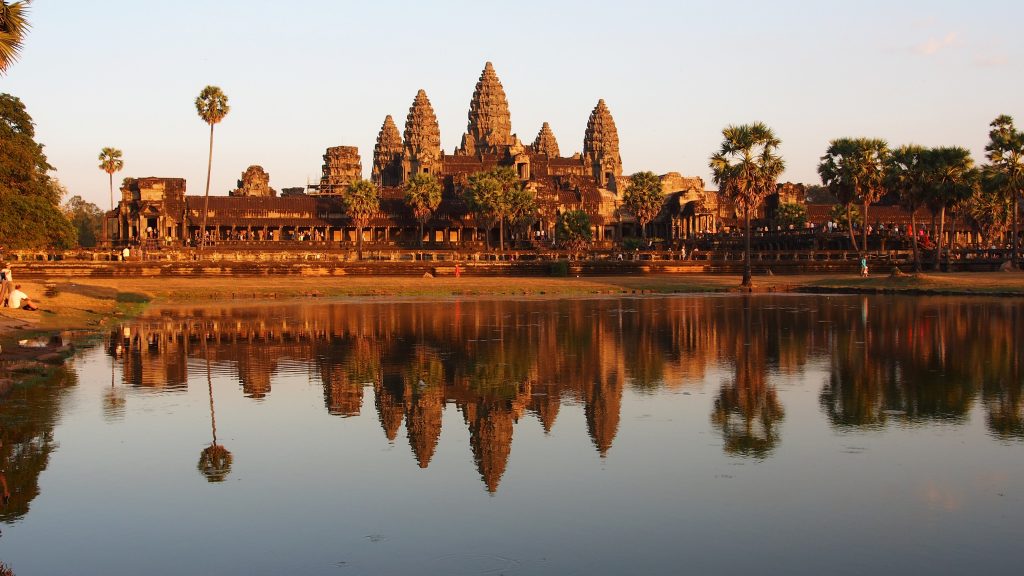How to get Cambodian Citizenship and Set up a Company in Cambodia
Want a 2nd passport? You can get a legit Cambodian citizenship and 2nd passport. It’s also a great place to form a company and start a business, and here’s why…
Most wanderers who finally make it to Cambodia have a truly peripatetic perspective. Unlike Thailand to the west, the country really is undiscovered.
SE Asia’s best kept secret – Cambodia is rarely the first stop for a traveler to Asia, that’s far more likely to be Toyko, Bangkok, Hong Kong or Singapore – not Phnom Phen. Most people don’t know about it, many that do wrongly assume there is nothing there.
But it is the false pretense that there is ‘nothing there’, which makes business opportunities ripe for the picking.
But Cambodia is a gem. From the ancient temples at Ankor Wat in Siem Riep, to the seaside province of Sihanoukville; Cambodia is full of Exotic Experiences, Polite People, and Interesting Investments. Also, its the only SE Asian country you can get a passport, and whereas it would take over 10 years to get citizenship in Thailand (and probably never happen anyway) its possible to get a legit citizenship in less than a 4 months in Cambodia.
Frontier Investment in Cambodia
Cambodia is one of Asia’s last frontiers, and truly a place of opportunity for the international investor or expatriate entrepreneur. Cambodia is accessible (foreigners can own 100% of a business, compare this to Thailand where foreign ownership is restricted to 49%) but similar to starting a business in Myanmar where you can’t own land as a foreigner, but a business can have 100% foreign ownership.
If you time your break, you could be well positioned for a cash flow positive passive business, low taxes, and quite possibly a Cambodian citizenship. The country is ripe for investment. But don’t take it from me, here is why the frontier investment fund manager, Douglas Clayton, who runs the investment fund Leopard Capital reasons why you should invest in Cambodia:
- Political stability
- Prime minister (under 60) has held power since 1985
- Several key ministers are also long-serving and experienced
- Ruling party’s mandate decisively renewed in 2008 election
- Advantageous location
- Sandwiched between two larger, more developed economies (Thailand and Vietnam) facilitating economic spillover
- Midway between China and India – the most important growth areas of the 21st century
- Along the Gulf of Thailand providing the country with ease-of-access to maritime trade
- Favorable investment climate
- 100% foreign ownership, except land (99-year land leases)
- Attractive investment incentives
- Open capital account; easy repatriation of profits
- Government-Private Sector Forum helps reduce obstacles and inefficiencies
- Increasing trade integration
- WTO member since 2004
- ASEAN membership offers regional trade benefits
- Duty free or preferential export access to most developed economies
- Advantageous labor conditions
- Among Asia’s lowest-cost workforces
- Abundance of willing, trainable workers
- Rising literacy rate has surpassed 75%
- Improving transport connectivity
- All key road and bridge links with neighboring countries have been or will soon be upgraded
- Railroad system is being rehabilitated
- Container seaport in Sihanoukville has been modernized and expanded
- Riverport in Phnom Penh is being relocated and enlarged to better access Vietnam’s new deep sea ports
- Three international airports have been opened
- Lower costs in telecoms and internet; power next
- Hyper-competition in mobile and internet sectors has cut user costs
- New hydropower and coal-fired power plants underway will replace oil-based generation and cut energy costs
- Untapped natural resources and land
- Fertile land for production and processing of agricultural commodities
- Aquaculture and livestock farming and processing potential
- Abundant mineral deposits await mining
- Off-shore oil and gas reserves
- World-class tourism sites (beaches, islands, history, culture, nature)
- Underpenetrated, growing domestic consumer market
- Exceptionally youthful demographics ensures rising domestic demand (61% of Cambodians are under 25 years old; median age: 21)
- Workforce participation, household formation, and urbanization will all show robust growth over the next decade
- Per capita GDP and purchasing power has more than doubled over the past decade and will continue to rise
- Emerging import substitution opportunities in various industries
- Unleveraged financial position
- Relatively low levels of sovereign, corporate, and consumer debt
- Well capitalized, conservative banking system
- No tradition of government bailouts and subsidies (Surprisingly rare in today’s world)
Read more on their frontier investment blog
It’s blatantly obvious that the macroeconomic trends are in your favor, but let’s fly down from the 50,000 ft level to 10,000 ft level. Where exactly do I put my money, so that I can actually make money in Cambodia?
1. Long Term –> Agriculture
If your strategy is to play long term, and create assets that are valuable for the next 50 years, look towards agriculture. its an easy win.
Farming is largely backed by government support, and everyone seems to realize this is an important sector for the country. Cambodia in 2012 received its FIRST order of rice from China, and it won’t be China’s last order of rice from Cambodia. Jim Rogers has stated that if you want to be rich “become a Chinese farmer.”
Better yet, don’t become a Chinese farmer and start a business in a communist country – start an agriculture business, and sell the rice to the Chinese from right next door.
Cambodia is well positioned to be the agricultural hotbed of southeast Asia. As Vietnam, China and Thailand race towards development, a growing population and rising middle class will demand more protein. Food, in general, will see a massive increase in demand, and decrease in supply in the 21st century. Cambodia and Myanmar are strategically positioned to start an agriculture business.
2. Short Term –> Tourism
Tourism on the southern beaches could absolutely explode in coming years. A spillover from the overcrowded Thai tourism market is inevitable, and Cambodia has pristine beaches that rival any in neighboring Siam.
Tourism has been growing over 10% YOY in Cambodia.
- 2.8 million tourists visited Cambodia in 2011
- 12 percent more than the 2.5 million arrivals in 2010.
Compare this to the 15 million tourists that visited Thailand in 2011, 55% of which were return tourists.
“Officials believe that international arrivals will reach 4.5 million by 2015 and 7 million by 2020” source, It is clear that the trend in UP for tourism, and there is still amazing beachfront plots available. Instead of wasting your money in Phuket, why not spring next door to the next Phuket.
Foreigners can’t own the ground floor of a building but are free to buy condos and other real estates, but it can if you get a passport…
3. Wildcard Investment –> Cambodian Citizenship
Alternatively, if you have the cash and want to make a run at it, you might seriously consider a citizenship by investment, or even set up some sort of program that provides this service to others.
As it stands, the total cost of this citizenship will run you about $200,000.
2 Reasons Why I Would Invest
1. Young Labor
There is a bountiful supply of smart and young labor in Cambodia, and the country holds an inherent advantage over neighboring Vietnam and Thailand, in that foreigners can be 100% owners of a company. The country is going to grow, and you can position your company to grow with it by tapping into the talent in Khmer Country.
2. New Stock Market
Any stock market marks an important exit strategy for business owners, and the fact that Cambodia even has one is encouraging. Despite there being only one listed company at the moment, this could be looked at advantageously, in that your initial public offering (IPO) would probably meet very little resistance.
If you don’t want to travel to Cambodia and directly invest, you might consider opening an account in the CSX. As of the time of this article, you’ll only be able to invest in one stock – the only public Cambodian company, a state run water supply co-called PPWS (Phnom Phen Water Supply) and this wouldn’t be a particularly wise investment.
As is the case with many companies that go public – the open offering is essentially an exit strategy for the initial investors, and most of the players are cashing out, not cashing in on the date of the public offering. This is why I am bullish on private investments, venture capital opportunities, and bearish on buying securities after they hit the public markets. The question of whether you should invest in stock markets has become: What would you rather have: Liquidity (easy to move funds in and out) or Profits (bigger gains with a longer maturity)?
If you are patient, and you don’t need to constantly access your investment money, and you are okay to actually INVEST your money you might consider…
Starting a company in Cambodia
You can fully own a company as a foreign natural person or legal entity with virtually no restrictions. To buy land in Cambodia the company will need to be at least 51% Cambodian owned. Nominee and proxy set ups are not uncommon.
- The investment law is quite progressive, and places no restrictions on dividends or remittance of capital abroad.
- Very few specific activities require a license.
Running a Cambodian Company as a Foreign Subsidiary

A branch or subsidiary registration is the simplest set up, and probably the most advisable. You could use your established company elsewhere, or utilize a Hong Kong or Singaporean bank account, or any jurisdiction which could handle a larger amount of funds, and is considered more secure for banking and currency purposes. Many clients might prefer to be invoiced or paid in Hong Kong dollars, US dollars or Singaporean dollars as opposed to Cambodian Reil.
Timeline for setting up a Cambodian company
Setting up a branch or subsidiary takes about 2 to 4 weeks to complete the procedures. Tax and labor registration will take about 1 to 3 months; however, the company can obtain its tax ID number in 2 weeks after filing an application and can start its operation, unless the activities are required to be licensed by a specific ministry or authority. The company is also required to comply with environmental rules for the activities which are likely to  have a negative impact on the environment.
have a negative impact on the environment.
Other than that, there is a lot of business that can be done without even setting up a company. Licensing and making sure you’re dealing with and getting along with officials with their hand out is/or can be more of a challenge.
============================
If you have doubts about going into the country yourself, but you still want exposure, you might consider investing through a Cambodian private equity fund, such as Leopard Capital. If you are a US citizen, you must be a qualified investor. You might also consider investing in an allocated gold account. Or if you are interested in other passport opportunities, you might contact me or join our PT Society. To compare options for incorporating, getting residency and a second passport or offshore bank account opening you can check our free tools passports.io, incorporations.io and bankaccounts.io.





